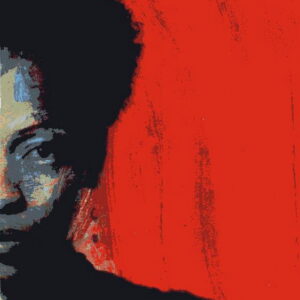Olufemi’s Ph.D. research focuses on the intersection of theology, mental health, and the arts. Her goal is to promote mental health awareness and advocacy through the development of a mental health hermeneutic that utilizes fashion and art in the womanist framework as a liberatory tool and model toward the eradication of stigma. She believes it is her calling as a public theologian to engage in dialogue and policymaking concerning the traditional cultural and religious distorted perceptions and beliefs on trauma and mental illness. A musician and writer by craft, she teaches creative writing, songwriting, commercial jingle writing, author study, poetry, and the philosophy of writing at California School of the Arts. As an adjunct professor, Olufemi teaches songwriting and contemporary Jazz vocal performance at Long Beach College and Citrus College. She is married to musician David Knight. A cradle Episcopalian, Olufemi serves and worships at Saint James.
Fuller Theological Seminary
MAT Global Arts & World Religions and Master of Divinity
Berklee College of Music (Boston, MA)
Contemporary Writing and Music Production
Public theology, the intersection of theology, the arts, fashion, and mental health hermeneutics, womanist theology and culture.
Womanist Public Theology and the Contributions of Anna Pauline Murray
2022, Global Network for Public Theology conference in Curitiba, Brazil
Murray was a lawyer, teacher, activist, poet, and Episcopal priest. It was from these perspectives that she engaged in public and private discourse. Murray’s legacy reflects a combination of politics, policymaking, public critique, theological engagement, and creative expression. This paper examines Murray’s contributions to the emerging theology referred to as Womanist Public Theology.
Damsels Versus Witches and the Battle for Women’s Identity in Narratives of Spiritism
2023, AAR-Western Regional Conference
Framed and influenced by folktales, fables, and screenplays, circles of exclusion are often perpetuated by labels and tropes projected onto the female gender. One would hope that once in a while there would be a story that expresses representations of the various types and shades of women. Much of what is represented frames women’s personalities, characters, and inner motivations within stereotypical binarism. Women are either perceived as helpless damsels or aggressive witches. They are interpreted as either submissive or venomously angry. These binaries, themes of bold contrast, are further complicated by race, ethnicity, class, and sexuality.
Why Women’s Theological Perspectives Matter for Teaching Psychology
2023, Journal for Psychology and Christianity, co-authored
Womanist theologies frequently speak of the “triple threat” of oppression which are the multiple discriminations of race, class, and gender that inform the Black female experience (Buchanan, 2008; Mitchem, 2008). In method, womanist theology provides a critique of racism in feminist theology and sexism in Black theology, and since many African American women have been negatively affected by the unequal distribution of wealth in the United States, it also addresses classism (Eugene, 1996).
Sexual Violence: Rape, Dismemberment, and the Determined Woman
2023, Don’t Look Away: The Horrors of Holy Scripture, Uncommon Voices Collective
In the aftermath, the woman lay at the threshold of the house like an old doormat. And a doormat she was. The man proclaims that he has witnessed the worst crime ever, but he is not upset about the woman’s abuse or rape. He is more concerned about the ill-treatment of his property. In Judges 19, an argument could be made that the dismembered body symbolizes the dissociated identity of the woman caused by betrayal and abuse.
Pauli Murray, Bell Hooks, and Love as a Tool for Reconciliation
2023, It’s All About Love: Jesus Movement Festival Conference
Bell Hooks and Pauli Murray were two Black women who most prevalently modeled the Black woman’s trinity of resistance, namely anger, joy, and love. Both women were Black female academics who entered studied literature as undergraduates. Also, both ended their journeys on earth as love warriors. Hooks authored books that integrated Black women’s perspectives on love as resistance in her pedagogy. Murray, who became the Episcopal Church’s first Black woman priest, insisted on drawing a larger circle to include the white males who excluded her throughout her journey as an academic, lawyer, and priest.

